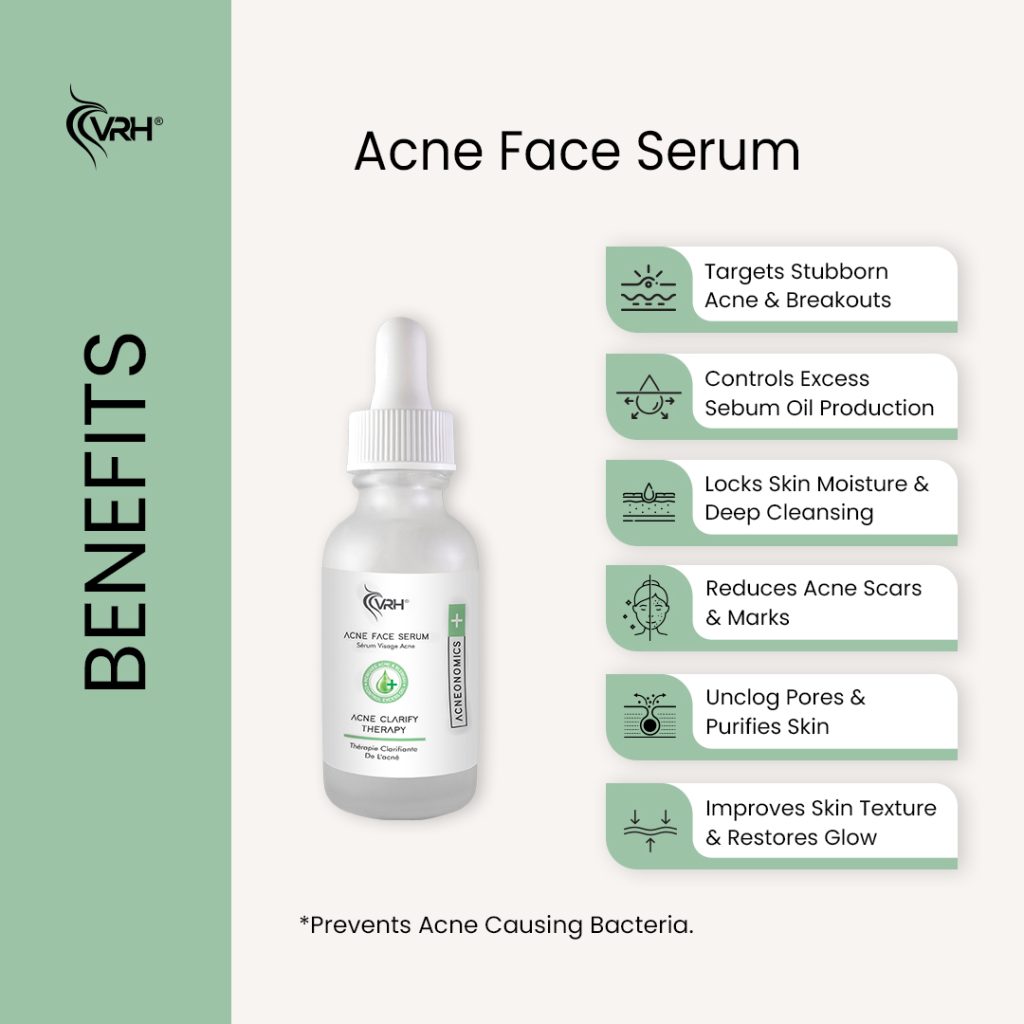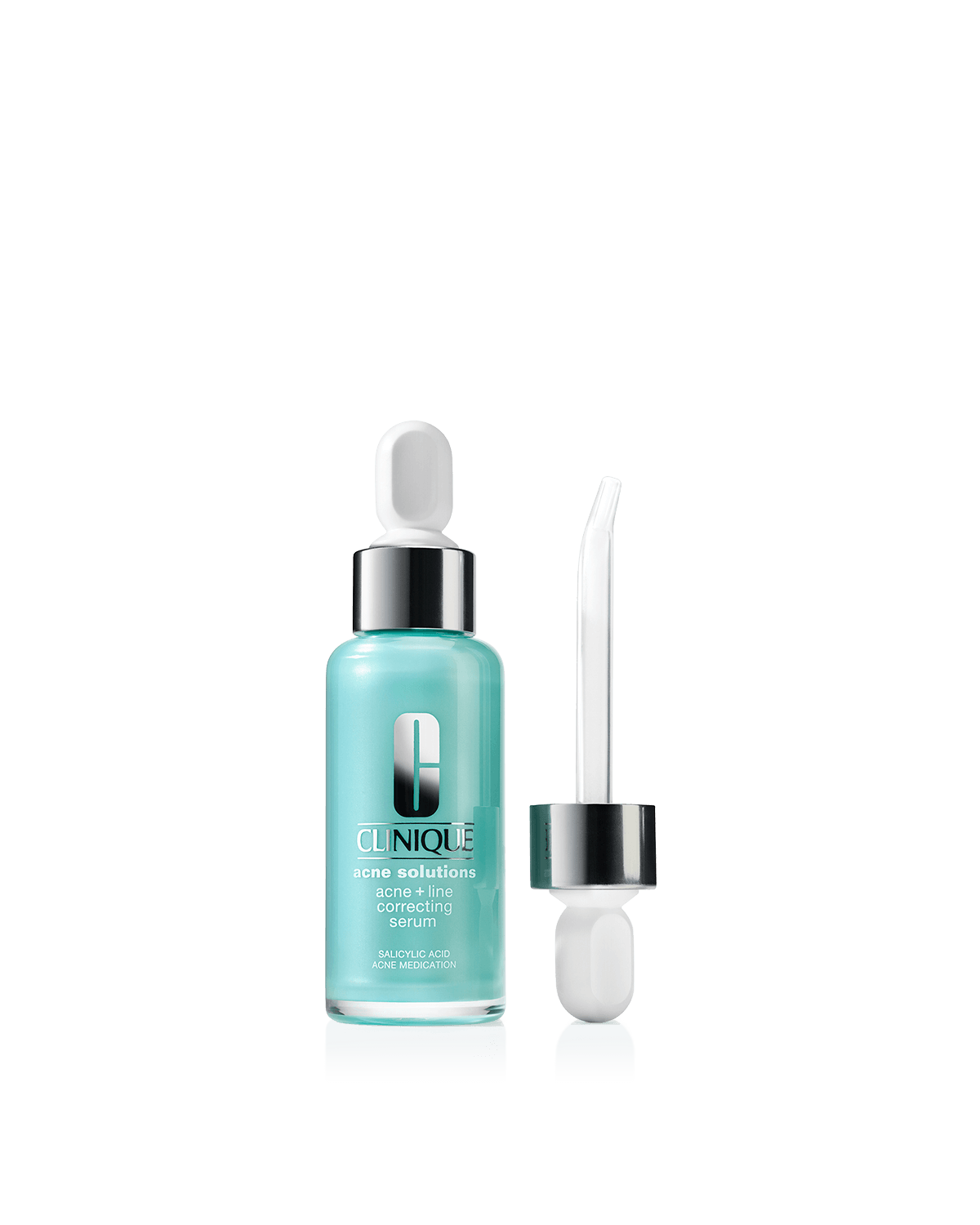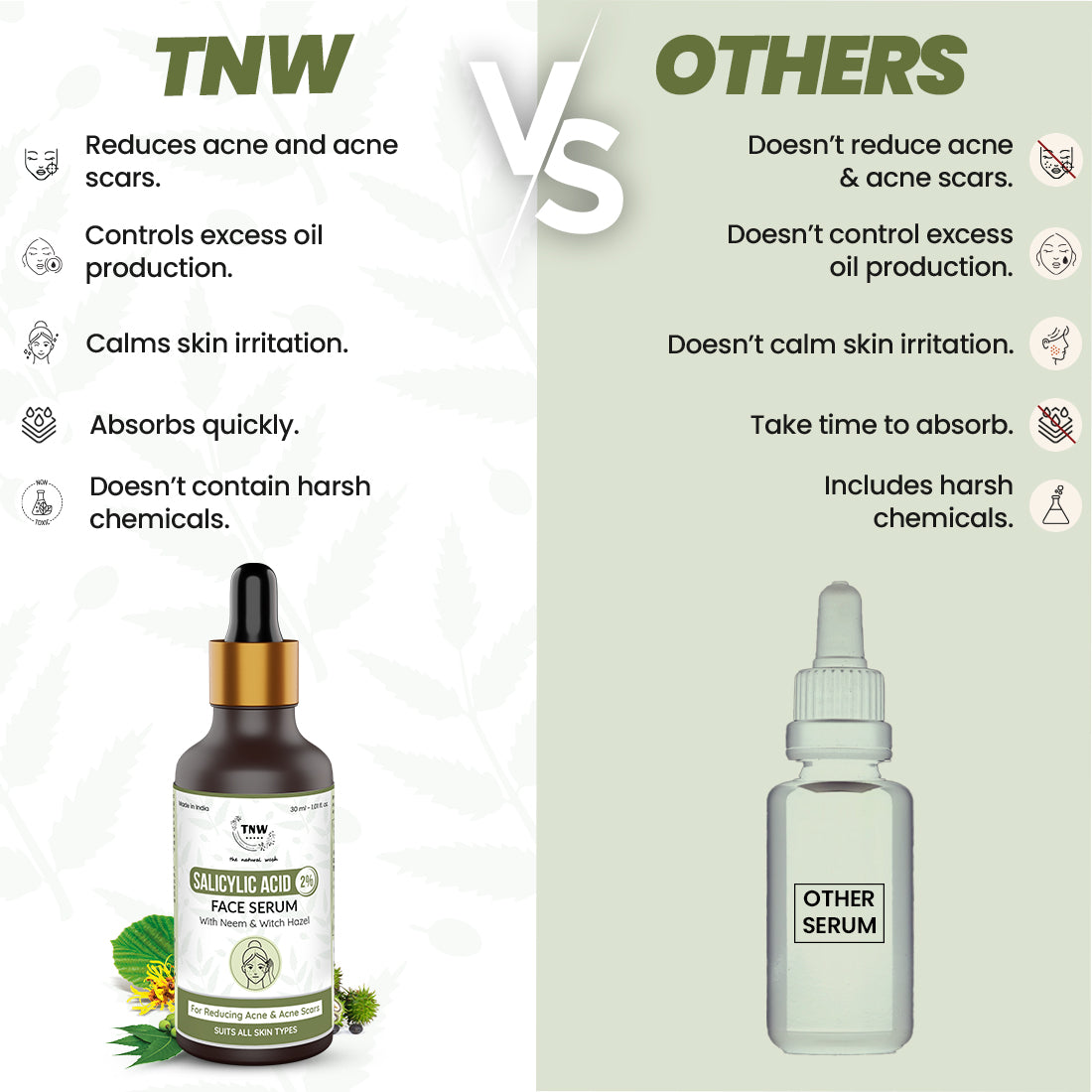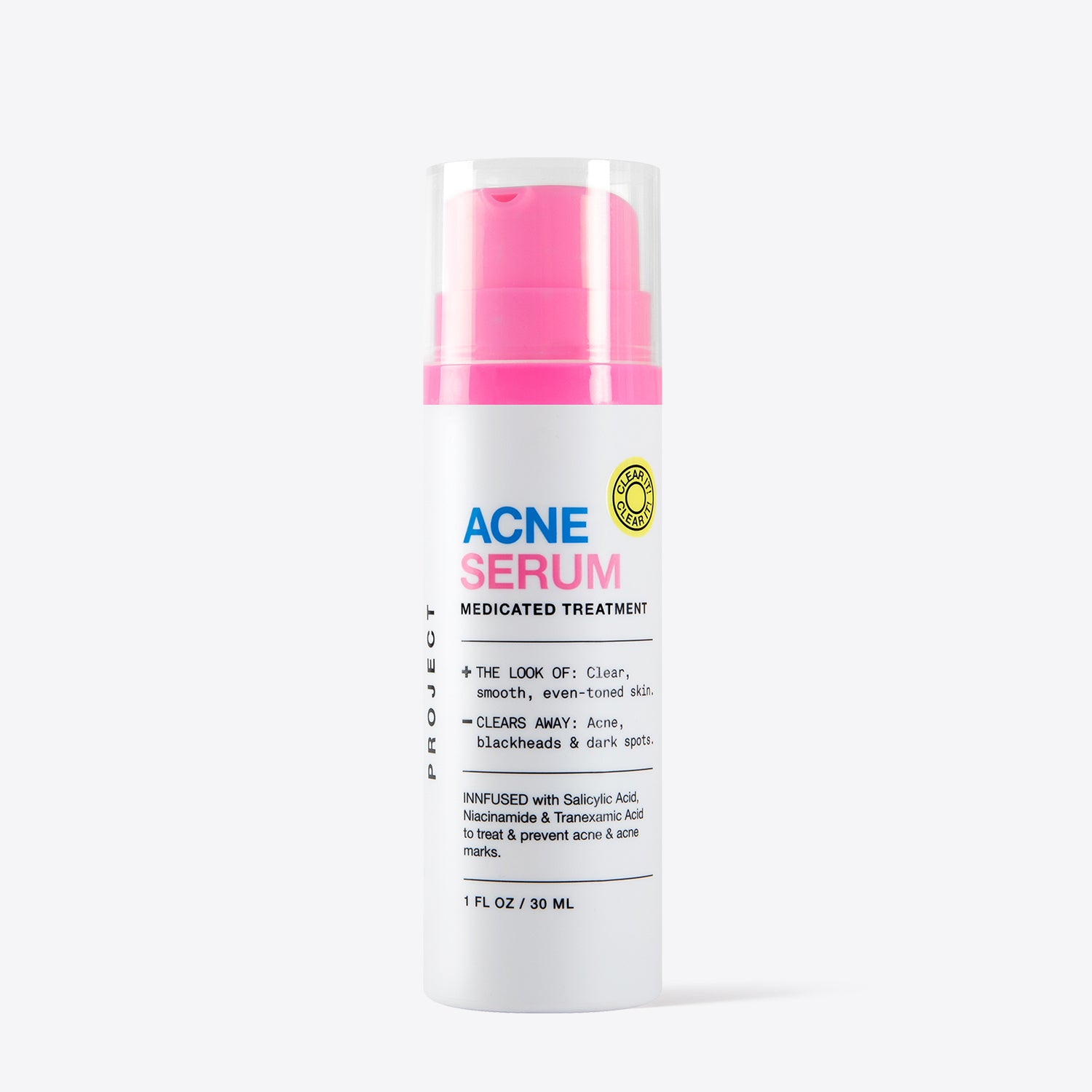Acne serum should be used after cleansing and before moisturizing when targeting acne-prone skin. Apply it daily, during your morning or evening skincare routine, to maximize its benefits.
Acne serums are specialized skincare products designed to penetrate deeply into the skin, delivering active ingredients that combat acne-causing bacteria and reduce inflammation. They often contain concentrated amounts of salicylic acid, benzoyl peroxide, or retinoids, which are known for their acne-fighting properties.
A well-formulated acne serum can help to unclog pores, diminish the appearance of existing acne, and prevent new blemishes from forming. It’s essential for those struggling with persistent breakouts or looking to maintain clear skin. By incorporating an acne serum into your daily regimen, you’re taking a proactive step in managing your skin’s health and clarity. Remember to select a serum suitable for your skin type and to patch test before applying it to your entire face.
The Role Of Acne Serums In Skincare
Imagine a powerhouse in your skincare arsenal. Acne serums are just that. They tackle breakouts head-on. These lightweight liquids deliver a concentrated dose of active ingredients directly to your skin. A tiny amount goes a long way. They absorb quickly and act fast. Serums can be game-changers for anyone struggling with acne.
Key Ingredients In Acne Serums
What makes acne serums so effective? It’s all about the ingredients. Here are some key players:
- Salicylic Acid: Unclogs pores and exfoliates skin.
- Niacinamide: Reduces inflammation and redness.
- Retinol: Speeds up cell turnover and fades scars.
- Hyaluronic Acid: Hydrates without causing more oil.
- Tea Tree Oil: Known for its antibacterial properties.
Benefits Of Including Serum In Your Routine
Add an acne serum to your routine for these benefits:
| Benefit | Explanation |
|---|---|
| Targeted Treatment | Focuses on acne without affecting other skin areas. |
| Fast Absorption | Serums are light and penetrate quickly into your skin. |
| Reduced Scarring | Active ingredients can help fade acne scars over time. |
| Less Oil Production | Some ingredients can help control excess sebum. |
| Better Skin Texture | Smooths out the skin for a clearer complexion. |
Identifying Your Skin Type
Before choosing an acne serum, it is crucial to understand your skin type. This knowledge helps tailor your skincare routine for the best results. Different skin types react uniquely to active ingredients in serums. Knowing your skin type ensures you select a product that works in harmony with your skin, not against it.
Skin Type And Acne Severity
Identifying whether you have oily, dry, combination, or sensitive skin is the first step. Acne severity also plays a significant role. Mild acne may require a different serum than moderate or severe conditions. Here’s a simple guide:
- Oily Skin: Prone to shine and breakouts.
- Dry Skin: May feel tight and have flaky areas.
- Combination Skin: Oily in some parts, dry in others.
- Sensitive Skin: Reacts quickly to new products or irritants.
Match your skin type with acne severity. A table can illustrate this well:
| Skin Type | Mild Acne | Moderate Acne | Severe Acne |
|---|---|---|---|
| Oily | Lightweight, oil-free serum | Salicylic acid-based serum | Retinol and benzoyl peroxide serum |
| Dry | Hydrating serum with hyaluronic acid | Niacinamide serum | Consult a dermatologist |
| Combination | Balance-focused serum | Targeted treatment serum | Consult a dermatologist |
| Sensitive | Soothing serum with aloe vera | Anti-inflammatory serum | Consult a dermatologist |
Customizing Serum Choice To Skin Needs
Each skin type demands a specific approach. Customizing your serum choice to your skin’s needs is vital. Here’s how to do it:
- Oily Skin: Look for serums that control oil and prevent clogged pores.
- Dry Skin: Choose serums that offer deep hydration without causing breakouts.
- Combination Skin: Find a serum that balances the skin’s hydration levels.
- Sensitive Skin: Opt for serums with gentle, non-irritating ingredients.
Read labels and research ingredients. Go for non-comedogenic, fragrance-free options for sensitive skin types. Seek advice from a skincare professional if you’re unsure about the right serum for your skin.
Best Timing For Serum Application
Finding the best time to apply acne serum can maximize its benefits for your skin. This potent product can be a game-changer in your skincare routine. But timing is everything. Let’s dive into when you should integrate this powerful elixir into your daily regime.
Morning Vs. Night: What Works Best?
The battle of day vs. night application has a simple answer: your skin’s needs dictate the schedule. In the morning, serums can protect against pollutants and UV damage. At night, they work undisturbed by environmental factors, focusing on repair and rejuvenation.
- Morning – use serum with antioxidants to shield skin.
- Night – apply retinol or hydrating serums for overnight healing.
Integrating Serum With Other Skincare Products
To layer skincare like a pro, follow this rule: thinnest to thickest texture. Start with cleanser, then serum, and finish with moisturizer. This ensures maximum absorption of each product.
| Step | Product | Notes |
|---|---|---|
| 1 | Cleanser | Prepares skin |
| 2 | Serum | Direct treatment |
| 3 | Moisturizer | Seals in serum |
Remember, wait a minute or two between applications. This allows products to penetrate properly. Your skin will thank you for the extra attention to timing and order.
Prepping Your Skin For Serum
Applying acne serum correctly starts with skin preparation. Proper steps ensure the serum works effectively. Here’s how to prepare your skin:
Cleansing: The First Step
Cleansing is crucial before applying serum. It removes dirt, oil, and makeup. This allows your skin to absorb the serum better. Follow these steps:
- Choose a gentle cleanser suitable for your skin type.
- Wet your face with lukewarm water.
- Apply the cleanser in circular motions.
- Rinse thoroughly with water.
- Pat your skin dry with a soft towel.
To Tone Or Not To Tone Before Serum?
Toning can be a valuable step. It balances the skin’s pH and refines pores. Consider these points:
- If your skin is oily: Use a toner to remove excess oil.
- If your skin is dry: Choose a hydrating toner to moisturize.
- If your skin is sensitive: Pick a gentle, alcohol-free toner.
Apply toner with a cotton pad. Gently wipe it across your face. Let it dry before applying serum.
Application Techniques For Maximum Benefit
Using acne serum correctly is crucial to get the best results. Let’s explore how to apply acne serums for maximum effectiveness.
Correct Amount And Spreading Method
Start with a small pea-sized amount of serum. This ensures you don’t overload your skin.
- Dot the serum on your forehead, cheeks, and chin.
- Use your fingertips to gently spread the serum evenly.
- Avoid rubbing too hard, as this can irritate the skin.
Gentle patting helps the serum absorb better.
Layering: Order Of Skincare Application
Apply skincare products in the right order for them to work well.
- Cleanse your skin to remove impurities.
- Apply toner to balance the skin’s pH.
- Use the acne serum as the third step.
- Follow up with moisturizer to hydrate.
- Finish with sunscreen during the day.
Remember, applying lighter to thicker textures works best.

Credit: www.vrhealthscience.com
Frequency Matters: How Often Should You Apply?
Applying acne serum is a key step in a skincare routine. The right frequency ensures your skin reaps the benefits without irritation. Let’s dive into how often you should apply acne serum for the best results.
Daily Vs. Weekly Serum Use
Daily application is common for most acne serums. These serums are designed to be gentle enough for everyday use. They help maintain consistent care for acne-prone skin. A morning or evening routine can include acne serum. Choose based on your skin’s needs and serum instructions.
Weekly serum use is for potent formulas. These may contain higher concentrations of active ingredients. Examples are exfoliating acids or retinoids. Using these serums less often helps prevent over-exfoliation and irritation.
Signs You Might Be Overdoing It
It’s crucial to notice signs of overuse. Your skin will tell you if you’re applying acne serum too often. Watch for these clues:
- Redness: Your skin may appear more red than usual.
- Dryness: Flaky, tight skin can indicate overuse.
- Peeling: Excessive peeling is a clear sign to cut back.
- Sensitivity: If your skin stings or burns upon application, consider reducing frequency.
Listen to your skin. Adjust your application frequency to avoid these issues. It’s always best to start slow with new products. Gradually increase use as your skin becomes accustomed.
When To Expect Results From Acne Serum
Discovering the right moment to witness clear, blemish-free skin while using an acne serum can be a journey of anticipation. It’s important to set realistic expectations for when an acne serum will show its magic. This section dives into the timelines for acne serum effectiveness.
Short-term And Long-term Effects
Immediate changes are subtle but can indicate your skin’s compatibility with the serum. Within the first few days, a decrease in inflammation and redness is a positive short-term effect.
- Day 1-7: Less oily skin and minor pimples may shrink.
- Week 2-4: Noticeable reduction in breakout frequency.
Long-term results require a bit more patience. The skin renewal cycle spans about four to six weeks, so this is the time frame for new, healthier skin cells to surface.
- Month 1-3: Significant decrease in acne and smoother skin texture.
- Month 3+: Potential for major improvements in skin clarity.
Patience And Consistency In Skincare
Skincare success hinges on consistency. Applying your acne serum as directed, typically once or twice daily, sets the stage for optimal results. Skipping days can delay progress.
| Timeframe | Skincare Action | Expected Outcome |
|---|---|---|
| Initial Weeks | Regular application | Mild improvements |
| 1-3 Months | Continued use | Noticeable results |
| 3+ Months | Consistent routine | Lasting benefits |
Remember that everyone’s skin reacts differently, and your timeline may vary. Stay the course, and trust that with regular use, clearer skin is on the horizon.
Troubleshooting Common Serum Issues
Acne serums can be a game-changer for your skin care routine. Yet, sometimes issues arise that need attention. From unexpected breakouts to skin irritation, knowing how to tackle these problems will keep your skin care journey on track. Let’s explore common serum issues and their solutions.
Dealing With Irritation And Breakouts
Skin irritation and new breakouts can occur when using acne serums. If you notice redness, stinging, or pimples after application, consider these steps:
- Patch test the product on a small skin area before full use.
- Start slow by applying the serum every other day.
- Use a smaller amount; a little often goes a long way.
- Combine with a soothing moisturizer to calm the skin.
- If breakouts persist, consult a dermatologist for advice.
Adjusting Your Routine For Seasonal Changes
Your skin’s needs change with the seasons. To prevent serum issues, adjust your skin care accordingly:
| Season | Adjustments |
|---|---|
| Spring/Summer | Use a lighter serum formula to avoid excess oil. |
| Fall/Winter | Increase hydration to combat dryness from cold air. |
Remember to apply sunscreen daily, regardless of the season, to protect your skin while using acne serums.
Expert Insights On Serum Integration
Understanding when to integrate acne serum into a skincare routine is key. Expert insights reveal that serums can be game-changers. They target acne with precision and deliver potent active ingredients. But knowing when and how to use them is crucial for effectiveness.
Dermatologists’ Tips For Serum Use
Consult with a professional before starting any new product. Dermatologists often suggest:
- Apply after cleansing to allow serum to penetrate deeply.
- Use a pea-sized amount; a little goes a long way.
- Pat gently onto the skin instead of rubbing.
- Wait a few minutes before applying moisturizer.
- Start with a lower concentration to test skin sensitivity.
- Incorporate slowly into your routine, beginning with fewer applications.
These steps help maximize the serum’s benefits and reduce potential irritation.
Evolving Your Skincare With Age And Lifestyle
As you age, your skin changes. Lifestyle factors like diet, stress, and sleep also affect skin health. Adjust your skincare to these changes. Here’s how:
| Age Range | Skincare Focus |
|---|---|
| Teens to 20s | Preventative care, light hydration, acne control |
| 30s to 40s | Anti-aging, deeper hydration, sun damage repair |
| 50s and above | Intensive moisture, elasticity improvement, age spot reduction |
Adapt serum choices to match these needs. For instance, a serum with salicylic acid might be ideal for a teenager. Someone in their 30s might choose a serum with retinol. Consider lifestyle factors like increased stress or exposure to pollutants. They might necessitate a serum with antioxidants. Always select products based on current skin concerns.

Credit: www.clinique.com

Credit: www.thenaturalwash.com
Frequently Asked Questions
When Is The Best Time To Apply Acne Serum?
The best time to apply acne serum is at night, after cleansing and before moisturizing. Nighttime application allows the serum to work while your skin repairs itself.
Can You Use Acne Serum Everyday?
Yes, you can use acne serum every day, but always follow the product’s specific instructions. Ensure your skin tolerates the serum well by starting with less frequent applications.
Do You Put Acne Treatment Before Or After Moisturizer?
Apply acne treatment before moisturizer to allow the treatment to penetrate your skin effectively. Moisturizer should follow to hydrate and protect your skin.
When Should I Use Serum In My Routine?
Apply serum to clean skin, ideally after cleansing and before moisturizing. Use it twice daily, in the morning and at night, for best results.
Conclusion
Navigating the world of skincare can be complex, but incorporating an acne serum is straightforward. Choose one when persistent blemishes arise or prevention is your goal. Remember, consistency is key for visible results. Embrace clearer skin by making acne serums a part of your routine today.

